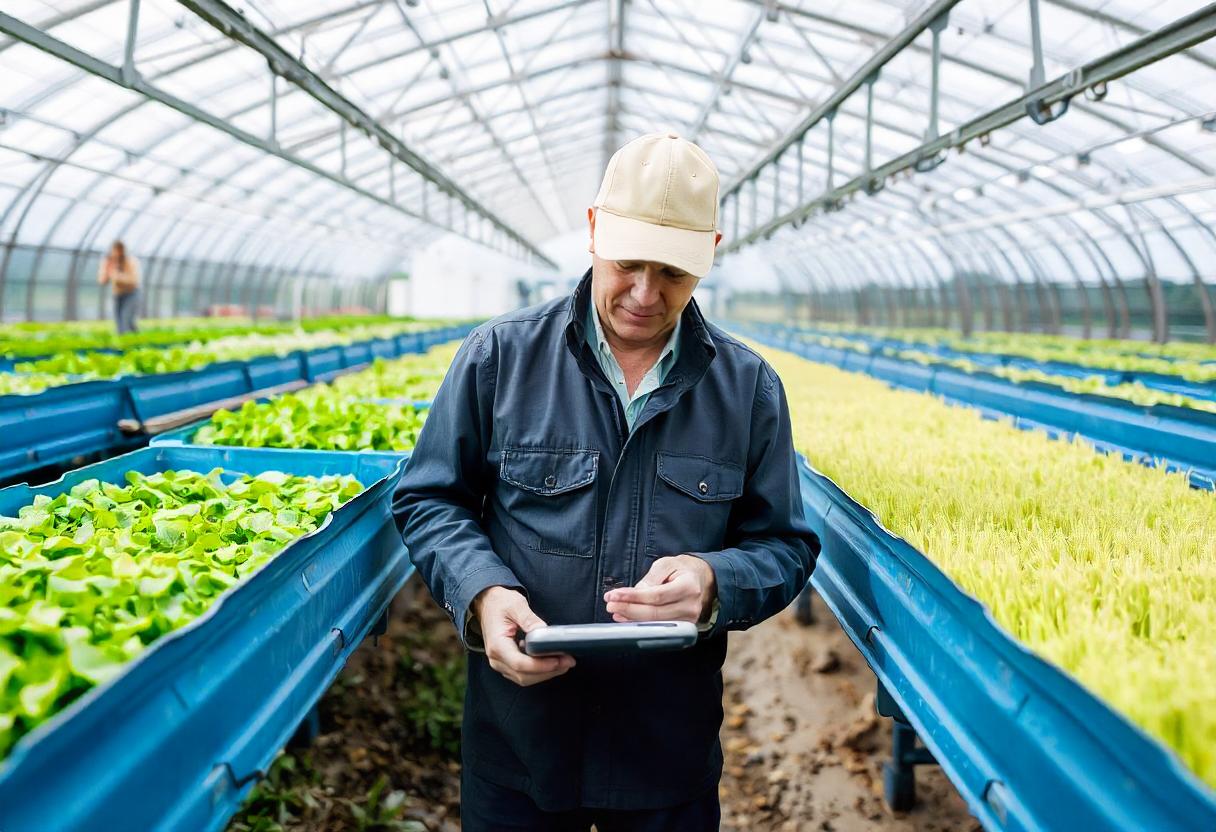
Agriculture technology encompasses a wide range of innovations designed to improve farming practices, increase productivity, and enhance sustainability. These advancements are reshaping the agricultural landscape, making farming more efficient, precise, and adaptive to changing conditions.
Precision Agriculture
Precision agriculture uses technology to optimize field-level management regarding crop farming. By employing tools such as GPS, sensors, and data analytics, farmers can monitor and manage their crops with greater accuracy. This technology allows for targeted application of water, fertilizers, and pesticides, reducing waste and improving crop yields. Precision agriculture also includes automated machinery and drones, which provide real-time data and enable precise interventions.
Agricultural Drones
Agricultural drones are becoming increasingly popular for their ability to collect aerial data and perform various tasks. These drones can capture high-resolution images of crops, monitor plant health, and assess field conditions. By analyzing this data, farmers can make informed decisions about crop management, pest control, and irrigation. Drones also help in mapping fields and assessing damage after natural disasters or adverse weather conditions.
Smart Irrigation Systems
Smart irrigation systems leverage technology to optimize water use in agriculture. These systems use sensors and weather data to determine the precise amount of water needed for crops, preventing overwatering and conserving water resources. Automated irrigation systems can adjust watering schedules based on real-time data, reducing labor and ensuring that crops receive the right amount of moisture.
Biotechnology
Biotechnology involves the use of living organisms or their products to improve agricultural practices. This includes genetic modification and breeding techniques to develop crops with desirable traits, such as resistance to pests, diseases, and environmental stresses. Biotechnology also encompasses advancements in soil health, such as the development of biofertilizers and biopesticides, which contribute to sustainable farming practices.
Farm Management Software
Farm management software provides a comprehensive platform for managing various aspects of farming operations. These platforms integrate data from different sources, such as weather forecasts, soil conditions, and crop performance, to help farmers make informed decisions. Features often include financial management tools, inventory tracking, and task scheduling. Farm management software streamlines operations and enhances productivity by providing a centralized system for managing farm activities.
Robotics in Agriculture
Robotics technology is revolutionizing agriculture by automating tasks that were previously labor-intensive. Robots are used for planting, weeding, harvesting, and sorting crops. These machines can operate with precision and efficiency, reducing the need for manual labor and increasing overall productivity. Agricultural robots also contribute to improving the quality and consistency of crops by performing repetitive tasks with high accuracy.
Artificial Intelligence (AI) and Machine Learning
Artificial Intelligence (AI) and machine learning are playing a crucial role in advancing agricultural technology. AI algorithms analyze large datasets to identify patterns and make predictions related to crop growth, pest outbreaks, and soil conditions. Machine learning models can improve over time, providing increasingly accurate insights and recommendations for farmers. These technologies enable data-driven decision-making and enhance the efficiency of various agricultural processes.
Sustainable Agriculture Technologies
Sustainable agriculture technologies focus on reducing the environmental impact of farming while maintaining productivity. These technologies include practices such as conservation tillage, which minimizes soil disturbance and erosion, and organic farming methods that reduce reliance on synthetic chemicals. Innovations in sustainable agriculture also encompass renewable energy solutions, such as solar-powered irrigation systems and bioenergy production from agricultural residues.
Internet of Things (IoT) in Agriculture
The Internet of Things (IoT) connects various devices and sensors to collect and exchange data in real-time. In agriculture, IoT applications include soil moisture sensors, climate monitoring stations, and automated irrigation systems. By integrating IoT technology, farmers can gain valuable insights into field conditions, monitor crop health, and optimize resource usage. IoT enhances connectivity and data accessibility, facilitating better management of agricultural operations.
Data Analytics in Farming
Data analytics involves the use of statistical and computational techniques to analyze agricultural data and derive actionable insights. By examining data related to crop performance, weather patterns, and soil conditions, farmers can make informed decisions that enhance productivity and sustainability. Data analytics tools help in identifying trends, forecasting outcomes, and optimizing farming practices based on empirical evidence.
Agriculture technology is continuously evolving, driving innovation and transformation in the farming industry. As new technologies emerge, they offer opportunities to enhance productivity, sustainability, and resilience in agriculture, paving the way for a more efficient and future-ready agricultural sector.